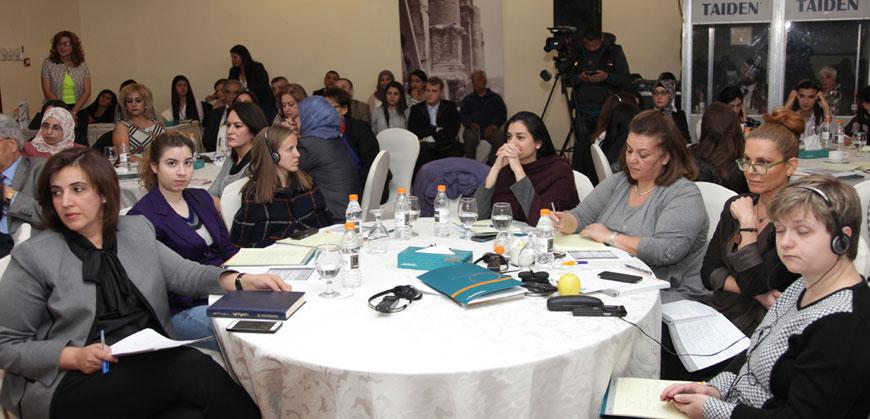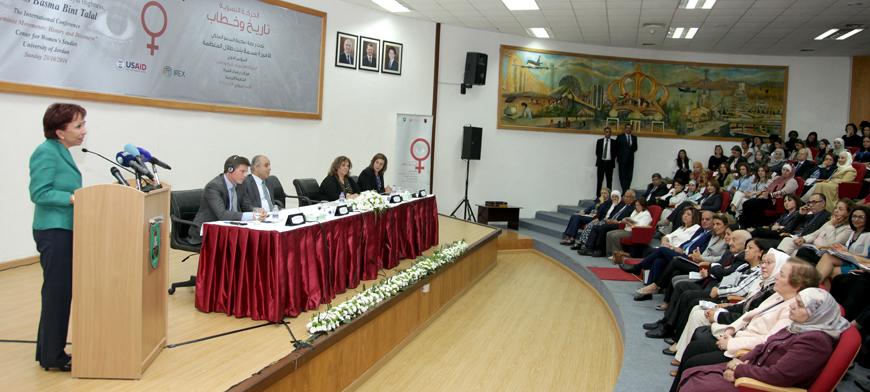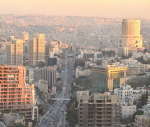You are here
Experts call for more networking among women, taking inspiration from community, religion to promote feminism
By Laila Azzeh - Mar 14,2016 - Last updated at Mar 14,2016

Activists attend a symposium in Amman to discuss feminism earlier this week (Petra photo)
AMMAN — The women movement's efforts in Jordan are "somehow fragmented", according to an expert, who has warned of a "real" crisis in the understanding of feminism and gender issues.
Citing these issues as the reasons behind the "lack" of knowledge and theory production on gender issues, Wafa Khadra, assistant professor at the American University of Madaba, said priorities of funding, as identified by international organisations contribute to the "division" in women movements.
She made her remarks during a symposium to discuss feminism, its history and current reality in the Arab world, held earlier this week by the Building Bridges Association and the German Friedrich-Ebert Stiftung.
Khadra, who is also an expert on gender, stressed the need for "sisterhood" as a way to unite women's efforts towards equality, calling for engaging women from all governorates and walks of life in discussions to formulate a blueprint for action.
"Women of Amman should not abduct the voices of those in Tafileh and Madaba for instance… we need a network where we can all connect," she said, noting that women have always been affected by the conflict between the East and the West, resulting in a state of "expatriation" in women's relationship with themselves.
Academic and thinker Hisham Ghassib presented a briefing on women in Marxism and how the movement perceives feminism, which should "dismantle" Capitalism in order to free women.
"Oppression of women has been associated with the emergence of private equities," he said, calling for an appropriate discourse that addresses women issues and suffering.
"I believe Marxism is conceptually prepared to take on such a mission against exploitation and oppression," Ghassib said.
On the other hand, Abeer Dababneh, director of the University of Jordan's (UJ) women studies centre, shed light on the concept of "religious interpretive feminism", which seeks to introduce different interpretations of religious texts that achieve women's equality and dignity.
"Given the nature of our societies, I think this school of thought might bring us forward, particularly as religious texts have always been read and interpreted by men," she noted.
However, Maysoon Otoum, who also works at the UJ women studies centre, said perceiving Arab women as "falling behind" is "unfair" and "illogical", arguing that "meta-narratives", such as Marxism and Liberalism are only Western theories that might not suit women in all societies.
"We have to look for our own perceptions because what works for the other might not suit us," she said.
Gynaecologist Maher Sarraf presented a historical briefing on the concept of sexuality and how women "fell from the status of goddesses to slaves thanks to patriarchy".
The symposium is one of a series of roundtable discussions the Building Bridges Association is planning to hold this year, according to its director, Haifa Haidar.
Related Articles
AMMAN — In light of the political situation in the region, feminism should be addressed as a key element in the quest for social justice and
AMMAN — Women groups on Wednesday called for establishing a women’s parliamentarian committee to address the growing challenges women are fa
School curricula for the elementary level must be revised to address conscious and unconscious stereotyping against women and to further highlight their contributions to public life, according to a field expert.

















